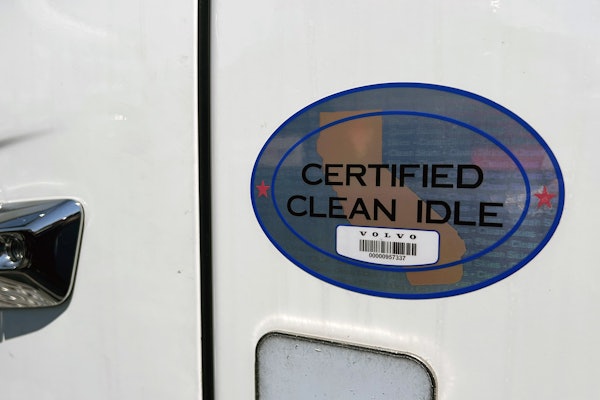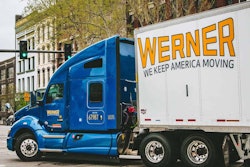Your company specializes in hauling refrigerated goods and owing to a busted thermostat, a load of expensive seafood spoils in transit. Or perhaps you are a flatbed carrier and due to a small hole in a tarp, rain caused a load of steel to rust. Not to worry. You are a big believer in insurance and have paid dearly to get ample coverage.
Unfortunately, you didn’t bother to read the policy before you accepted it. Your cargo insurance contains a number of common exclusions, including damage due to temperature, rust and moisture. So even though temperature and water are among your most common adversaries, you aren’t covered and must cover the loss yourself.
Welcome to the world of cargo insurance loopholes. Don’t be fooled by the term “all risk” insurance. The term really is a misnomer because a cargo policy never covers everything that a motor carrier is liable for under the Carmack Amendment, says Henry Seaton, a partner in the Vienna, Va.-based law firm Seaton & Husk. Seaton conducted a workshop on avoiding coverage gaps on behalf of Commercial Carrier University at the recent Truckload Carriers Association annual meeting. A copy of Seaton’s presentation can be found at this site. (For a discussion of gaps in liability policies, see “The illusion of coverage,” CCJ, April 2006.)
Exclusions due to temperature, rust and moisture are longstanding and well understood. But other categories of exclusion appear more subject to changes as insurers discover new risks, often related to the $60-billion-a-year “business” known as cargo theft.
Under the theft exclusion are three big traps awaiting unsuspecting carriers. For example, insurers these days generally won’t provide cargo coverage to a trailer left in unguarded lots, Seaton says. A similar threat is the unattended vehicle exclusion. A cargo policy may deny coverage unless the driver or some other agent of the carrier is with the trailer at all times. Since there are times when a driver must leave the vehicle during the course of a trip, as a practical matter this exclusion likely would require team drivers – especially in situations where the load was of high value or otherwise in a risky environment. Finally, some insurers require that the truck and trailer be locked at all times and that any lot in which the trailer is parked be guarded.
Related to the theft exclusion is the specified commodity exclusion. For many years, everyone knew the types of commodities that would be excluded from a standard cargo policy: bullion, negotiable instruments, objets d’art and other articles of high and unusual value. Today, cargo policies often exclude coverage for many everyday goods – but ones that can be fenced for big bucks – such as garments, electronics and computers, Seaton says. Moreover, these exclusions may be stated in broad terms, so a carrier may not really know whether a load of tube socks is covered any more than a load of high-end Nikes.
But all the “gotchas” aren’t due to cargo theft. Sometimes your coverage for damage to goods in transit depends on how the damage occurred. For example, some cargo policies provide coverage only in the case of a crash or rollover. An upset in transit that did not result from a full-fledged accident might not be covered.
Finally, even if the cargo policy affords coverage, co-insurance provisions may present you with a nasty surprise when time comes for the payout. For example, suppose you suffer a 20 percent loss on a load worth $500,000 and you have $100,000 in nominal coverage.
Everything’s OK, right? Not if the policy contains co-insurance provisions. In that case, the insurer will pay only 20 percent of your policy limit – or $20,000.
The only way to avoid these traps is to be aware of them and look for them in your policies, Seaton warns. Purchase insurance on quality and not just price, and put insurance out to bid using only qualified agents, he advises. And in your request for proposals, describe your needs and your operations, and demand an express statement of all exclusions at the time of presentation.







